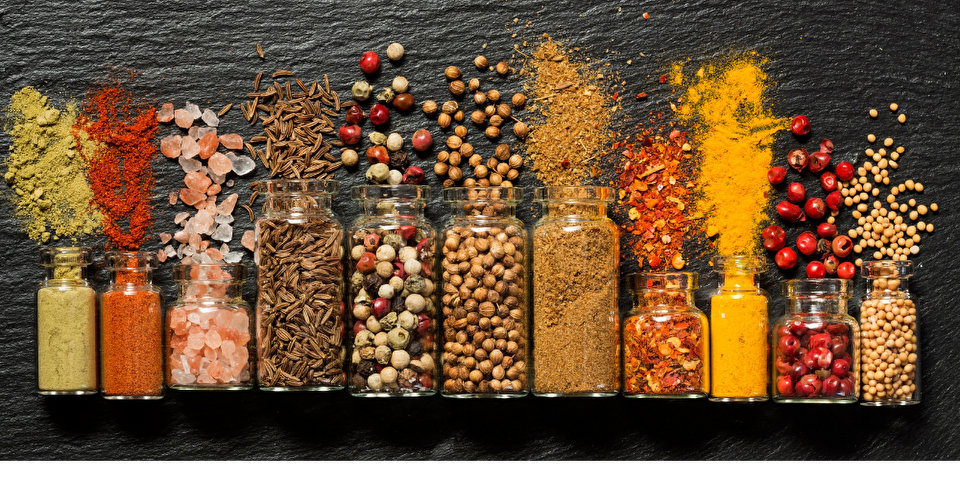 Just last night, my husband was whipping up a delicious Mediterranean chicken dish. (Yes! I’m lucky enough to have a husband who pitches in to cook every now and then!)
Just last night, my husband was whipping up a delicious Mediterranean chicken dish. (Yes! I’m lucky enough to have a husband who pitches in to cook every now and then!)
As he took a final taste test of his creation, his brow furrowed and he looked very thoughtful. "Needs a little something," he mumbled, reaching for the familiar saltshaker. I stopped him, suggesting, "Why not try a spice instead? It'll add flavor and be better for our overall health!"
Now, this might be a new concept to you, but my husband has heard this from me many times because he tends to add more salt to most dishes.
But this time, he put down the salt and began looking through the spice drawer! Our meal was transformed with a sprinkle of cumin, its warm, earthy notes complementing the Mediterranean flavors perfectly. But beyond the taste, cumin boasts antioxidant-rich terpenes that can help reduce inflammation.
Are you the type of person who will immediately reach for the saltshaker even before tasting a meal, looking to add a burst of flavor to the dish?
While salt may be a kitchen staple, there's a whole world of spices waiting to be explored, offering not only taste but also powerful anti-inflammatory benefits!
This got me thinking: many people overlook the incredible anti-inflammatory power of spices!
Try using some of these top 5 anti-inflammatory spices instead of reaching for salt the next time you're thinking your dish needs a flavor boost! I'm including a few recipes as well to help you explore their flavors.
1. Turmeric: The golden star of anti-inflammatory spices, turmeric contains curcumin, a potent compound with numerous studies highlighting its ability to reduce inflammation throughout the body. Add a pinch to curries, rice, or even smoothies! You might like to try this recipe. Cauliflower “Popcorn” with Turmeric, see the extra anti-inflammatory version at the end of the recipe that uses 3 of the spices here!
2. Ginger: This versatile spice packs a punch with gingerol, a compound known for its anti-inflammatory and pain-relieving properties. Grate fresh ginger into stir-fries, soups, or even tea for a soothing boost. Try it in this Curry Butternut Squash Soup.
3. Cinnamon: Beyond its sweet warmth, cinnamon contains cinnamaldehyde, a compound shown to reduce inflammation and improve blood sugar control. Sprinkle it on oatmeal, yogurt, or even savory dishes like stews for a touch of sweetness and anti-inflammatory goodness. Try this Moroccan Turkey Stew for a new way to use cinnamon.
4. Cayenne Pepper: Don't be afraid of the heat! Cayenne pepper's fiery kick comes from capsaicin, a compound with anti-inflammatory and pain-relieving properties. Start small and add it gradually to sauces, marinades, or even scrambled eggs for a spicy kick with benefits. Try a new dish like this Harira Moroccan Soup.
5. Garlic: This culinary staple is a treasure trove of anti-inflammatory compounds, including allicin. Add fresh garlic to stir-fries, marinades, or even roasted vegetables for a flavor and health boost. Here’s a wonderful dish to try that uses garlic: Balsamic Kale and Black Beans.
6. Cumin: Not to be forgotten (one of my favorite spices!) Try it on roasted veggies or in this veggie and chicken dish, one of my go-to favorites because it’s so easy to make. Chicken Nestled Over Roasted Vegetables
Remember, these are just a few examples! Experiment with different spices and find what works for you. By incorporating these flavorful anti-inflammatory wonders into your diet, you can add zest to your meals and fight inflammation naturally. So, ditch the salt shaker, embrace the spice rack, and get ready to taste the difference – your body will thank you!
Bonus Tip: Combine spices for even greater anti-inflammatory power! Try turmeric and ginger in a golden milk latte, or sprinkle cinnamon and cayenne pepper on roasted vegetables for a flavor explosion.
Happy cooking and stay healthy!
To Your Health,
Evey

